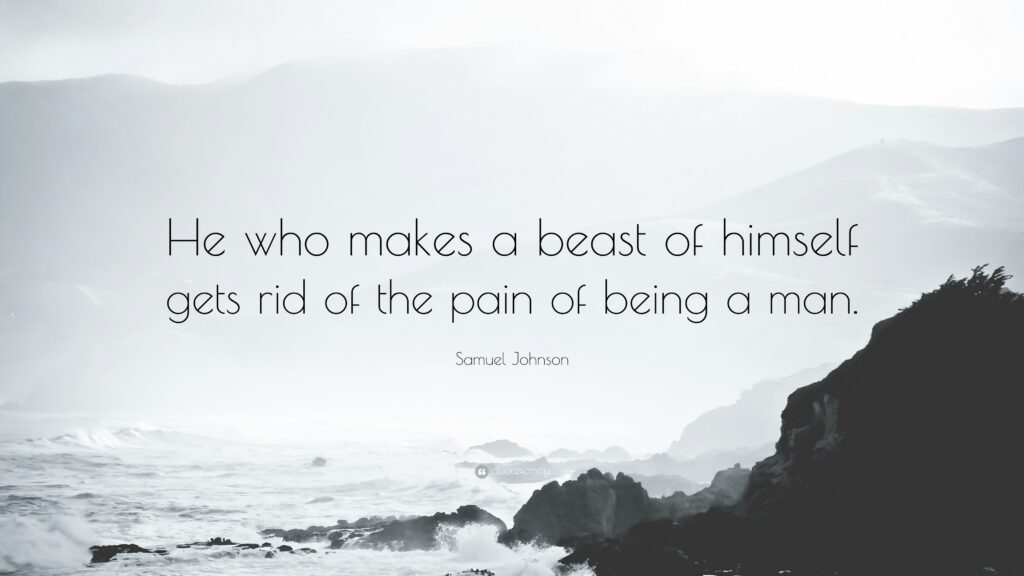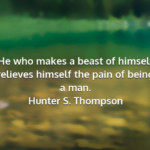As humans, we possess a unique capacity for good and evil. While we are the only species on Earth capable of moral reflection and decision-making, there are times when we act impulsively, without considering the consequences of our actions. This can lead us down a path of moral regression and resemble our animalistic instincts. The phrase “he who makes a beast of himself” is a well-known quote that serves as a warning against such behavior. In this blog post, we will explore the origin and meaning of this quote and its implications for humanity.
In this article, we’ll talk about the origin of the quote “he who makes a beast of himself”, its explanation, and the dual nature of humanity.
The Origin of the Quote
The most likely origin of the quote “he who makes a beast of himself” can be traced back to the English poet and essayist, Alexander Pope. In his poem, “Essay on Man,” Pope describes the human condition, with its inherent contradictions and uncertainties. He suggests that humans are capable of both good and evil, and we must constantly struggle to choose the right path. Pope’s quote is a powerful reminder of the dual nature of humanity, and how we must be mindful of our actions at all times.

The Dual Nature of Humanity
Pope’s quote serves as a reminder that humans are not perfect beings, and we must constantly work to improve ourselves. We have the capacity for both good and evil, and we must strive to choose the right path. When we act impulsively, without considering the consequences of our actions, we can become like animals. We lose our sense of reason and morality and give in to our baser instincts.
The Implications for Humanity
The quote “he who makes a beast of himself” carries significant implications for humanity. It reminds us that we must constantly be aware of our own weaknesses and limitations, and strive to overcome them. We must be mindful of the consequences of our actions and consider the impact they will have on others. We must be aware of our own strengths and weaknesses and work to overcome our weaknesses while building on our strengths.
The Importance of Self-Reflection and Personal Responsibility
While the phrase “he who makes a beast of himself” is a warning against impulsive and thoughtless behavior, it also serves as a reminder that each individual is responsible for their own actions. As humans, we have the unique ability to reflect on our own behavior, understand the impact it has on others, and make changes to better ourselves and the world around us.
Self-reflection is an important part of personal growth, and it requires us to look inward and honestly assess our own behavior. This can be a difficult process, as it requires us to acknowledge our flaws and weaknesses. However, it is an essential part of personal growth and allows us to become better versions of ourselves.
In addition to self-reflection, personal responsibility is also crucial. We must take ownership of our actions and understand the impact they have on others. This requires us to be mindful of the consequences of our actions and to consider the needs and feelings of those around us.
By taking responsibility for our actions, we can begin to make positive changes in the world. We can work to correct our mistakes, apologize when necessary, and strive to do better in the future. This not only benefits us as individuals but also has a positive impact on the people and communities around us.
Conclusion:
In conclusion, the phrase “he who makes a beast of himself” serves as a reminder of the implications of humanity, both good and bad. It is a call to action, urging us to reflect on our own behavior, take personal responsibility, and strive to be better. By doing so, we can make a positive impact on the world and create a better future for ourselves and those around us.










